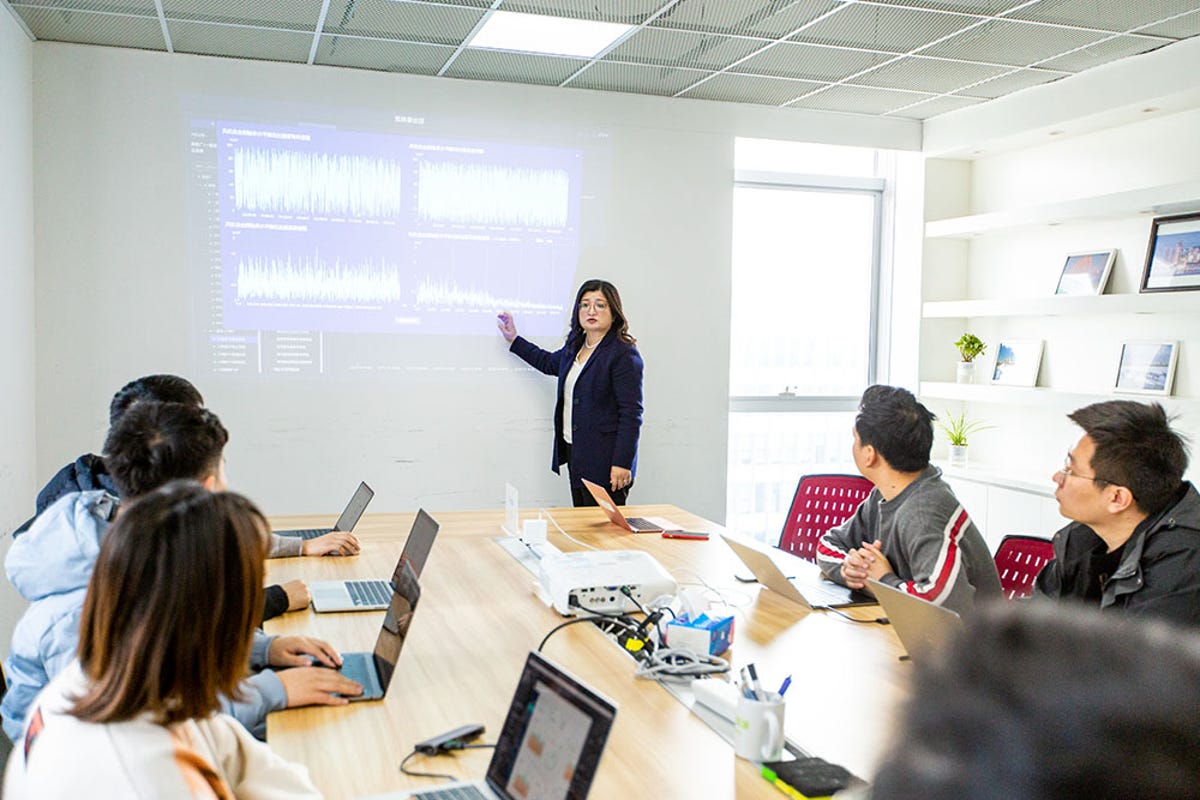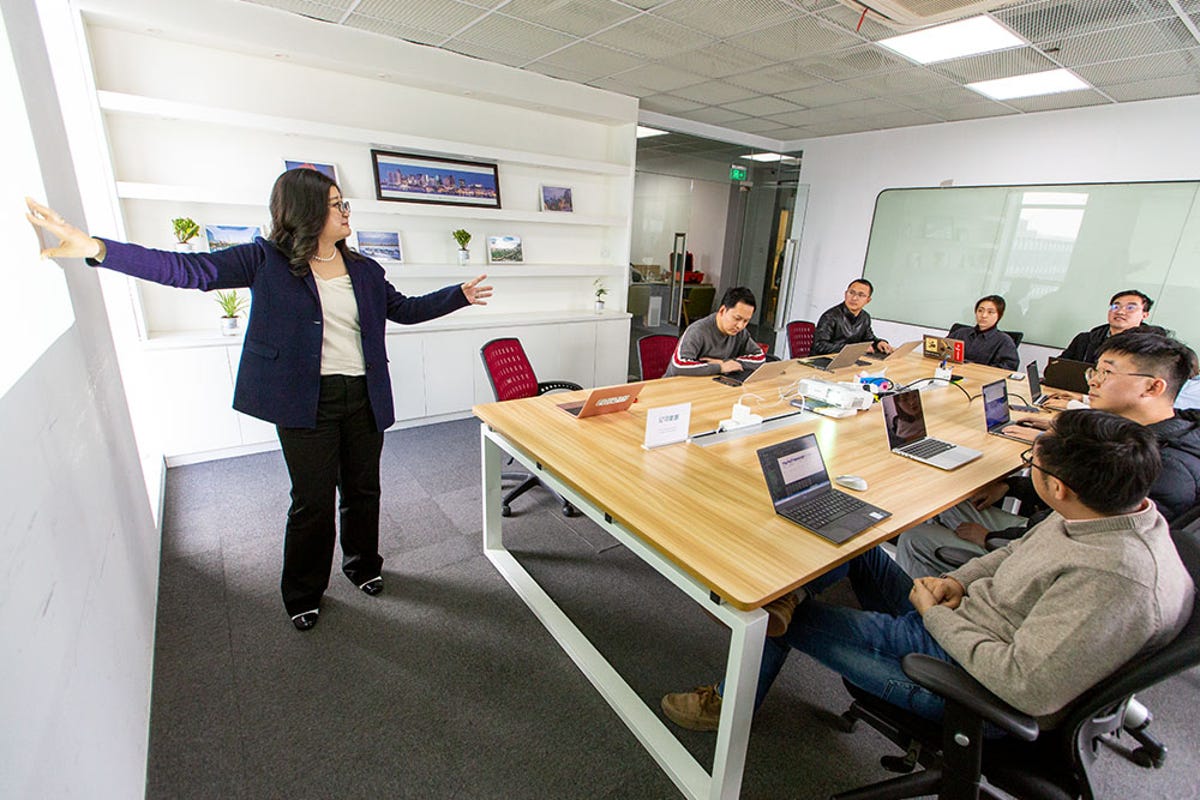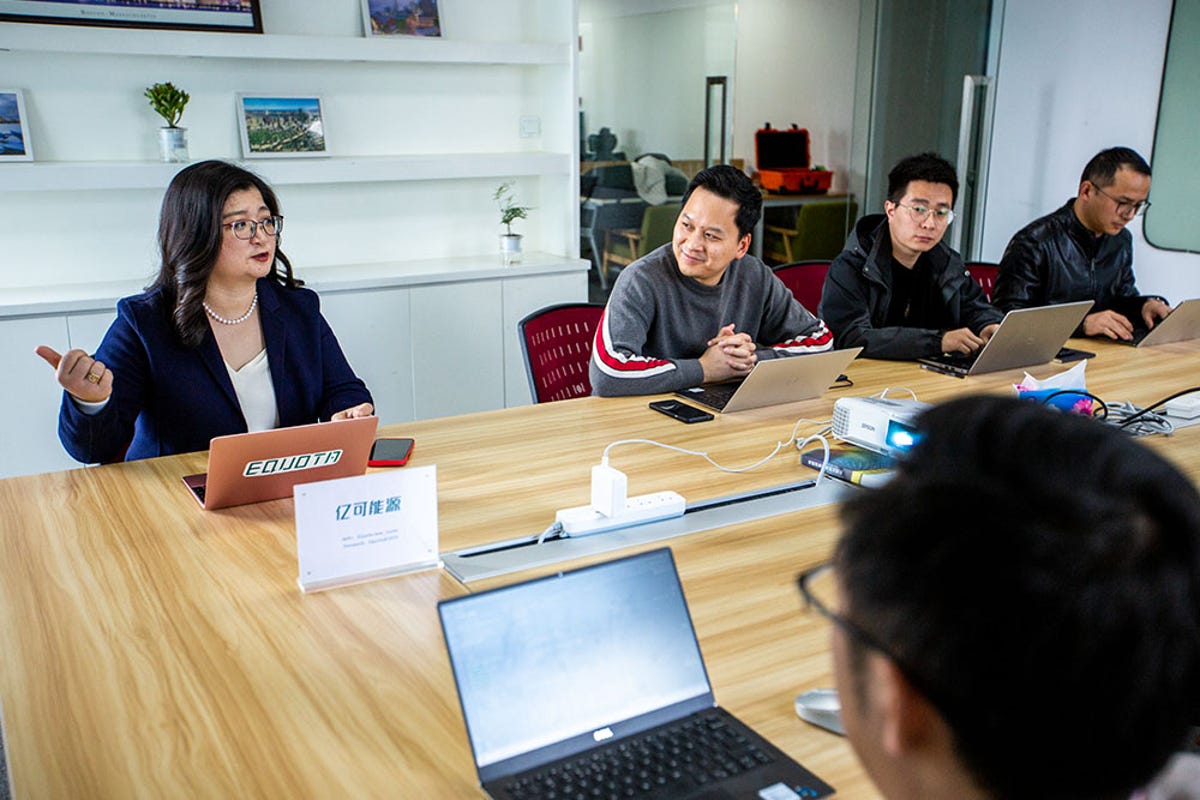Charlotte Wang
EQuota

EQuota is an energy optimization company that combines artificial intelligence and big data to deliver energy efficiency solutions.
East Asia
China
Fellow | Impact Awardee
2020 | 2022
Updated March 2020
The High Cost—in Dollars and Lives—of Pollution in China
With nearly 1.5 billion citizens and a land area exceeding nine million square kilometers, China is big by any standards, with pollution challenges to match. Although recent initiatives have reduced airborne particulates, China still bears a high cost for fossil-fuel-related pollution. In 2019, the country saw 1.42 million deaths attributable to fine particulate matter pollution, according to the State of Global Air Report 2020.
Charlotte Wang grew up in a village near coal-fired power plants, where she experienced the toll of pollution directly. The problem’s gravity became evident when she left China. “Before I left for college in the United States, my bad sinuses had become a major issue,” she says. “Every two weeks I had to go to a clinic to drain the pressure.” Within a week of landing in the United States, her sinus problems disappeared.
I feel like it’s my mission to use the technology I developed for the good of the next generation. That became clear to me when I had my first daughter.

Tracking Energy Usage With Real-Time Monitoring
As a researcher at MIT, Charlotte began developing a concept for restructuring China’s energy-intensive traditional power grid operations. “When I had my first child, I felt a responsibility to create a low-carbon future that preserves our earth,” she says. She founded EQuota in 2014 to manage energy data, thus improving efficiency and reducing carbon emissions—and leading to cleaner air.
She compares EQuota’s tools to personal fitness trackers, which give individuals immediate, real-time feedback to make healthier choices. For large energy consumers, EQuota’s non-intrusive technology gathers data from existing monitoring systems such as smart meters and applies artificial intelligence (AI) to analyze usage patterns and identify inefficiencies. Customers don’t have to add new hardware and they can analyze the data using an online dashboard.
The company serves every point along the energy supply chain, targeting the most energy-intensive operations. “We serve the largest steel mill in China, the largest chemical plant, and the largest cement group. We also serve the world’s largest grid network,” Charlotte says. For utility grid customers, EQuota focuses on safety by predicting equipment failures. The company’s technology forecasts energy needs so grid customers can respond almost instantaneously to demand fluctuations. For power plants, EQuota optimizes energy use and helps the shift to renewable sources.
Just like an individual can monitor daily exercise with a fitness tracker, we want to create a tool for large factories to track and optimize their energy consumption.

Fewer Particulates Equals Fewer Deaths—in China and Globally
To date, EQuota has reduced CO2 emissions by 8,104,897 tons, prevented 189,877,938 MWh in energy consumption, and saved customers around $22.8 million in USD. These accomplishments represent savings equivalent to the energy use of half a million homes over a year and translate into reduced particulate matter and ultimately to fewer illnesses and deaths from pollution.
Recognition has followed. In 2021, EQuota became the only private company to serve the state grid on its carbon management platform. It was one of only two energy companies—and the only Chinese company—recognized as a 2021 Technology Pioneer by the World Economic Forum. Charlotte also was invited to serve on China’s National Science and Technology Advisory Commission.
Currently, EQuota’s primary market is in China. The company wants to increase its global impact by becoming a leader in supplying timely data to policy- and decision-makers. “I established EQuota to create a better future not just for the next generation but for the current one,” Charlotte says. “This is the drive behind what we are doing.”
We generated a significant impact by helping to close five coal-fired power plants and reduced over eight million tons of carbon dioxide, the equivalent of Shanghai's eight million people stopping all transportation for two months.



